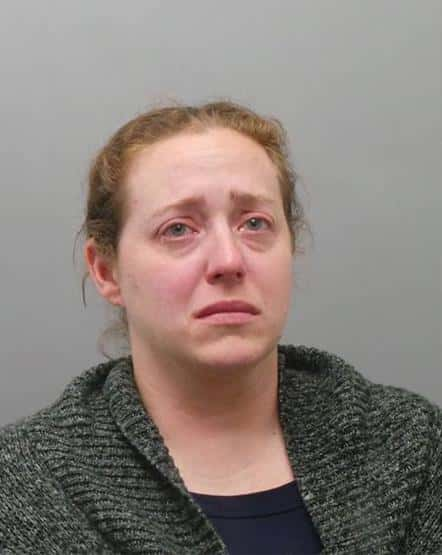Restorative justice: Here's why cop Julia Crews had charges DROPPED for shooting shoplifter

On November 5, a 13-year veteran of the Ladue Police Department named Julia Crews met with Ashley Fountain Hall, the woman she accidentally shot in April 2019. Shortly after, Crews had her felony charges dropped, allowing her to return to work, albeit not in the police force. It's just one of the many examples of restorative justice, a social movement that has long been popular in countries like Canada and South Africa and is now finding roots here in the USA.
For a very long time, activists and politicians have been calling for a reform of the criminal justice system. In fact, back in 2020, Kim Kardashian even met the then-President over the matter. On the campaign trail, Joe Biden laid out his version for reform, but over 10 months into his administration, most of them are yet to see the light of day. Simply put, America's criminal justice system is broken, and there seems to be little political appetite to change that.
RELATED ARTICLES
Kim Kardashian docu shows prison rehabilitation programs reduce crime and save taxpayers money
That said, there have been a few efforts to do so. In April 2019, we reported on CNN's 'The Redemption Project'. Like with Crews, the project is an attempt at restorative justice, which hopes to avoid the cycle of incarceration, punishment, and ostracism brought by the current justice system. In many cases, it's proven to be highly valuable as well.
What is restorative justice?
The social movement has been described as an "aim to redirect society’s retributive response to crime. Restorative justice views crime not as a depersonalized breaking of the law but as a wrong against another person... restorative justice seeks to elevate the role of crime victims and community members; hold offenders directly accountable to the people they have harmed; and restore, to the extent possible, the emotional and material losses of victims by providing a range of opportunities."
Simply put, restorative justice is a system where the victim and the offender sit together and work out a solution that allows both of them to heal from the crime. Rather than simply lock the offender away, this system ensures that the offender is still a part of society, and can therefore contribute in a positive way. At the core of the movement is direct mediation, i.e. dialogue between the victim and offender.
The reason restorative justice is gaining steam is because it avoids sending people to jail but still ensures offenders are held responsible. It is widely adopted in Canada and South Africa, as well as Europe. It is believed around 30 states practice some form of restorative justice today.

Restorative justice in the USA
In 1994, the American Bar Association endorsed victim-offender mediation, bringing restorative justice to the US criminal justice system for the first time. In the decades since, it has been adopted only by a handful of states and cities. St. Louis County in Missouri adopted restorative justice for the first time in the case of Crews and Hall. In April 2019, Crews responded to a call from a supermarket in Ladue saying two women left without paying.

That led her to arrest Hall, who put up a struggle. Crews then accidentally shot Hall, while attempting to subdue her with her taser. Hall survived, after being resuscitated at the hospital, where she spent months. Crews was charged with second-degree assault, a felony charge that carries a 10-year prison sentence. After recovering, Hall said she forgave the officer, but still wanted some action to be taken.
After filing a federal lawsuit, the duo was offered a restorative justice session by St Louis County prosecuting attorney Wesley Bell. That led to mediation via Zoom on November 5. It's unclear what was said, but it appears Hall has forgiven the ex-cop for her actions, which led to her felony charges being dropped. It will allow Crews to return to work as a vindicated woman, and continue to contribute to Laude's economy and society, without the specter of having spent a decade in jail.










